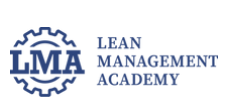The history of Lean spans several decades and is rooted in the efforts of various individuals and organisations to improve efficiency, productivity, and quality.
Here's a chronological overview of the key milestones in the development of Lean:
Early Influences (late 19th to early 20th century):
- The origins of Lean can be traced back to the late 19th and early 20th centuries when pioneers such as Frederick Winslow Taylor and Henry Ford made significant contributions to industrial engineering and mass production.
- Taylor's principles of scientific management emphasised systematic analysis and optimisation of work processes to increase efficiency. At the same time, Ford revolutionised manufacturing by introducing the assembly line and standardised production methods.
Toyota Production System (TPS) (1940s-1950s):
- The foundational principles of Lean emerged from the Toyota Production System (TPS), developed by Toyota Motor Corporation in post-World War II Japan.
- Key figures such as Taiichi Ohno and Eiji Toyoda played instrumental roles in shaping TPS, which focused on eliminating waste, improving flow, and achieving high levels of productivity and quality.
- TPS introduced concepts such as Just-in-Time (JIT) production, Jidoka (autonomation), kanban (visual signalling), and continuous improvement (kaizen), which became core principles of Lean management.
Spread to the West (1970s-1980s):
- In the 1970s and 1980s, Western companies, particularly in the automotive industry, began to adopt Lean principles after observing the success of Japanese manufacturers like Toyota.
- Books such as "The Machine That Changed the World" (1990) by James P. Womack, Daniel T. Jones, and Daniel Roos introduced the concept of Lean production to a broader audience in the West and documented the principles behind Toyota's efficiency and quality.
Lean Thinking and Application (1990s-Present):
- The term "Lean" gained popularity in the 1990s as a shorthand for Lean production or manufacturing. Lean thinking expanded beyond manufacturing and into other industries, including healthcare, services, construction, and software development.
- Organizations embraced Lean principles such as value stream mapping, continuous improvement, respect for people, and customer focus on driving efficiency, eliminating waste, and delivering greater value to customers.
- Lean methodologies, frameworks, and tools were developed to facilitate the implementation of Lean principles in various contexts, including Lean Six Sigma, Total Productive Maintenance (TPM), and Lean Startup.
Continued Evolution and Integration:
- Lean management continues to evolve, with ongoing efforts to refine its principles and practices to address changing business environments and challenges.
- Lean principles have been integrated with other management approaches, such as Agile, Design Thinking, and Industry 4.0, to create hybrid methodologies and frameworks tailored to specific industries and contexts.
Throughout its history, Lean management has effectively improved processes, enhanced quality, reduced costs, and fostered a culture of continuous improvement in organisations worldwide. Its principles and practices continue to influence how businesses operate and manage their operations in pursuit of excellence and value creation.

